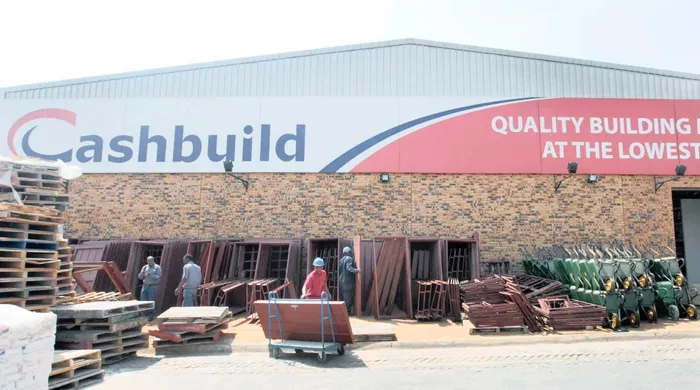
The high interest rate environment has spelled an increase in building material.
Image: Simphiwe Mbokazi/Independent Newspapers
With the prevailing economic and environmental realities, homebuilders are encouraged to consider alternatives such as the usage of Alternative Building Technology (ABT) and Innovative Building Technologies (IBT).
This was as the whilst high interest rates inevitably impacted the affordability, or lack thereof, and increase in home construction costs.
Portia Sebulela, the head of Marketing, Communications and Stakeholder Relations at the National Home Builders Registration Council (NHBRC), said it was actively encouraging the usage and uptake of ABT and IBT, which is are unconventional building methods or materials which are not covered by the National Building regulations and building standards.
She said these are assessed for fitness purposes by Agreement SA, a certification body and custodian of IBTs in the country.
“Some of the notable advantages of ABT and IBT include reduced construction time, reduced life cycle cost, environmental impact, as well as innovative architectural options,” Sebulela said.
In March, the Social Housing Regulatory Authority (SHRA) said the primary risks to the housing sector include economic uncertainties, rising construction costs, and bureaucratic delays that could slow down project implementation.
To resolve these problems, the institution said policy alignment, financial commitments, and stronger industry partnerships would be required.
The NHBRC, a regulatory body of the home building industry, said since the inception in 1998, there has been gradual yet noticeable improvements where compliance is concerned.
In January this year, President Cyril Ramaphosa signed into law the Housing Consumer Protection Bill to replace the Housing Consumers Protection Measures Act of 1998.
The NHBRC said though the commencement thereof is yet to be announced by the Minister of Human Settlements, Thembisile Simelane, the incoming Act will introduce significant changes to the legislative framework within the South African home building industry, thus enhancing how the NHBRC undertakes consumer protection and industry regulation.
The NHBRC said that given the age of the current Act, the incoming Act will significantly address the isolated incidents of non-compliance and related gaps within the current regulatory framework.
According to Sebulela, under the current outgoing Act, the non-categorisation of home builders is one aspect that is a challenge to the NHBRC.
She said that fortunately, with the imminent new Act, the NHBRC has an opportunity to ensure home builders are categorised, graded and classed according to their respective levels of competence.
She said currently, the Act prescribes that all homes must be enrolled with the NHBRC at least 15 days before construction.
“This requirement enables the NHBRC to manage its risk by ensuring that houses are inspected at all the key stages of construction. However, should the construction of the home commence without the prerequisite enrolment, this is referred to as late enrolment.
"The challenge with late enrolment/s is the associated high risk thereof. The current practice by the NHBRC to inhibit late enrolments is to request the home builder to provide a financial guarantee.”
The NHBRC said the home-building industry, like many sectors, is impacted by the economic realities of the country. However, it said there are signs of resilience boosted by the innovation and technology within the sector.
“For instance, most housing consumers are opting for smaller and sustainable housing as a replacement for bigger living spaces. Cluster housing is on the rise with smart technologies implemented in the housing industry, hence the growth of smart cities.”
The regulator said the standards are constantly revised to meet global challenges and introduce new Building Technology in the housing sector. The NHBRC is actively promoting ABT and IBT and the applicable training with the relevant stakeholder groups.
Sebulela said the homebuilding sector requires ongoing collaborative efforts from the government, financiers and business to support innovation, uphold compliance and maintain quality standards to improve the livelihood of people by implementing sustainable Human Settlement programmes.
The SHRA said to improve the sector’s outlook, a more coordinated effort is required between government departments, municipalities, and private sector investors to ensure timely land release, efficient funding mechanisms, and supportive infrastructure development.
Related Topics:
